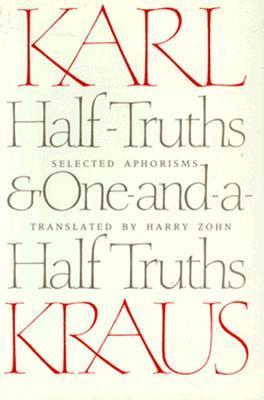What do you think?
Rate this book


135 pages, Paperback
First published January 1, 1976
The making of a journalist: no ideas and the ability to express them.And more on politics and war (World War I was the catalyst for his pacifist views):
An analyst turns man into dust. (the reference here is to psychoanalyst)
The secret of the demagogue is to appear as dumb as his audiences so that these people can believe themselves as smart as he.
War is, at first, the hope that one will be better off; next, the expectation that the other fellow will be worse off; then, the satisfaction that he isn’t any better off; and, finally, the surprise at everyone’s being worse off.On public morality, censorship, religious dogmas...
Diplomacy is a game of chess in which the nations are checkmated.
Religion, morality, and patriotism are feelings that are manifested only when they are outraged.The centrality of language in his thought about culture influenced Wittgenstein:
Insights into erotic life belong to art, not to education. But sometimes these have to be spelled out for the illiterates. And it is mainly a matter of convincing the illiterates for they are the ones who write the penal code.
Christianity has enriched the erotic meal with the appetizer of curiosity and spoiled it with the dessert of remorse.
Language is the mother of thought, not its handmaiden.The book title is taken from Kraus' definition of his favored literary sub-genre:
An aphorism never coincides with the truth: it is either a half-truth or one-and-a-half truth.